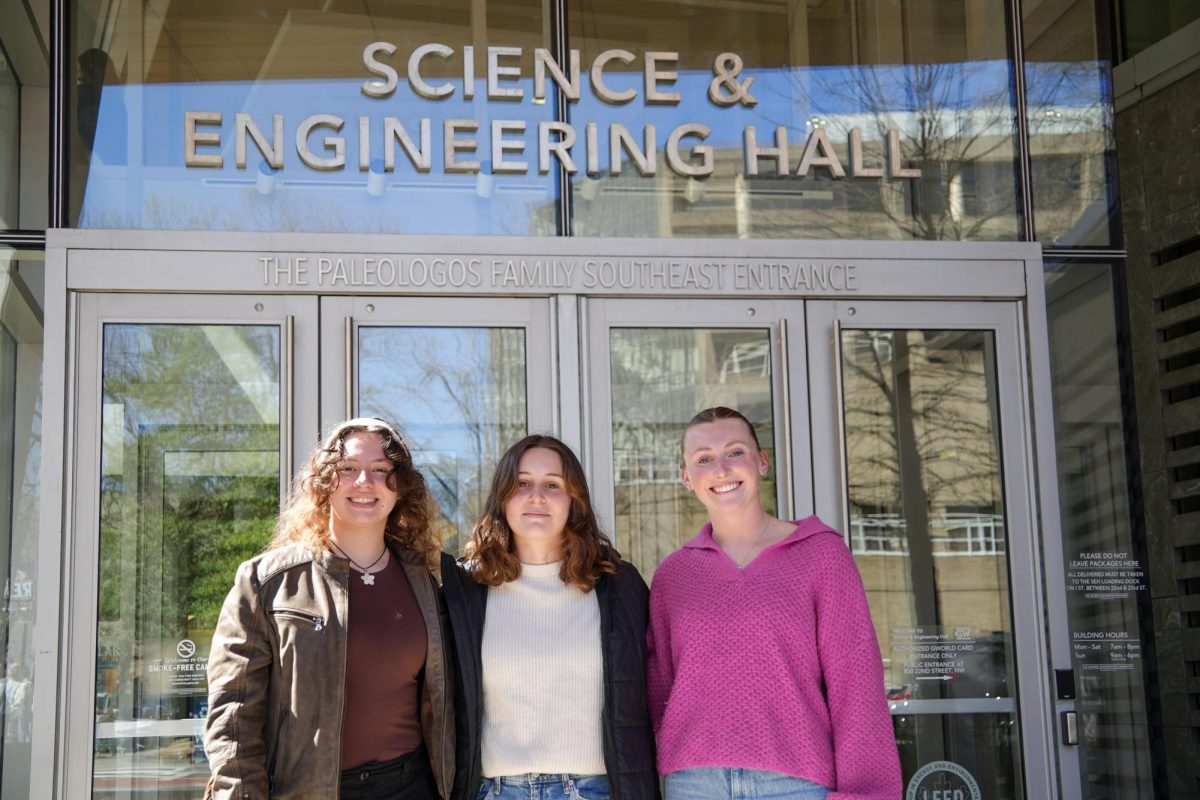An engineering student organization will build a community library to serve a town in Northern Uganda later this year.
GW Engineers Without Borders is working on engineering calculations, grant applications and fundraising to build a community library in Yumbe, Uganda, next winter break, having designed the layout for the space last semester. Junior Isabella Elmore, a co-leader of the project, said the library will house a solar-powered computer lab, a women’s health and early child development center, a rainwater collection system and a printing center, with the goal of enhancing education in Yumbe, particularly for women and girls.
Elmore said Nested Savings, a nongovernmental organization that works to alleviate poverty in Uganda’s West Nile region, reached out to EWB in 2019 to build a new library in Yumbe after they found that a small library the organization previously built increased students’ test scores. Elmore said Nested Savings and Yumbe wanted to work with EWB to build a larger library that could serve as a community center and improve education and health, beyond just serving as a location to store books.
“We realized that they wanted something a lot bigger and more holistic,” Elmore said.
Elmore said members of GW EWB are seeking $50,000 in grants and donations to cover travel costs and building supplies so they can begin construction in Yumbe on their design. She said members have begun applying for grants like those through the Clinton Global Initiative and other educational organizations.
Elmore said the group initially planned to travel to Yumbe this summer to begin construction, but a lack of funding forced them to push the trip to winter break.
Elmore said eight EWB members plan to lay the structure’s foundation and build the computer lab and women’s health center during winter break. The group will go back to Yumbe in 2025 or 2026 to build the new book storage portion of the building and convert Nested Savings’ old library into a printing center if they secure travel funding, she said.
Progress on the project halted during the onset of the COVID-19 pandemic because it prevented EWB members from taking an assessment trip to Uganda, an EWB requirement that Elmore said is essential to ensure the project will help the community long term.
But Elmore said she visited Yumbe in August and interviewed local religious leaders, members of government, educators, women and children. Through the interviews, she learned about problems the community faces, like low literacy rates and women having children at a young age, to understand how they can address them in the library’s design.
She said the women’s health center will support pregnant women and allow teenagers with children to continue studying and the computer lab will help residents learn skills in computer technology, empowering them to get jobs as computer technicians. Individuals in West Nile, Uganda, aged 20 and above have an average of 5.46 years of education, according to data from the Global Data Lab.
“The biggest thing is sustainability,” Elmore said. “We want to build something that is going to be used going to last and it will actually help things.”
Junior Tamar Todd, the project’s co-lead, said after Elmore returned from Uganda the group began examining interviews from the trip to determine top priorities for the library and create the general layout for the library last semester. She said the group went into the University Yard to plot the building’s dimensions and see the layout in full-scale to finalize the design.
Todd said this semester she and a team of 10 to 15 students have been performing calculations to determine the weight the foundation can support to determine building materials and make the library’s design compliant with national EWB standards and both American and Ugandan building standards.
“This is a good project for a good cause, and I’m very proud of the students that we’re working with on the project,” Todd said
She said the organization will continue refining the design and double-checking calculations until they earn enough money to travel to Uganda and build the library later this year.
Todd added that EWB is working with a Ugandan engineer who is helping them facilitate construction costs and building the structure. She said the organization plans to stay in contact with the engineer so that he can check in on the library after it’s implemented to ensure the structure is serving the community as intended.
She said they also plan to continue to monitor the project by staying in touch with a librarian who will work in the building and through Nested Savings but that EWB’s goal is to design the building so that the community can run it self-sufficiently.
“We should still be able to check in with everyone just by email and video calls and that kind of stuff but the hope is that once we actually get it implemented, things are working properly, that they’ll be able to maintain it and keep it running themselves,” Todd said.
Sophomore Lily Sarnowski, the president of GW EWB, said the group plans to block out about a month over the summer to complete the first phase of construction, having a rotation of EWB members traveling to Uganda in about two-week intervals so that they can oversee the entire construction process.
She said EWB’s other ongoing project, a percolation pond that captures and stores runoff rainwater to expand water access in a northern Indian town, began construction as planned in June, but faced problems with the project’s partner organization, who she said is pushing off construction and preventing the project’s completion. She said the plan to stay in Yumbe for the entirety of the library project should prevent an issue like that from occurring.
“Those are the complications when you’re trying to deal with something or do something thousands of miles away,” Sarnowski said. “But I think the Yumbe team has a great approach to keeping that and preventing that from happening.”





